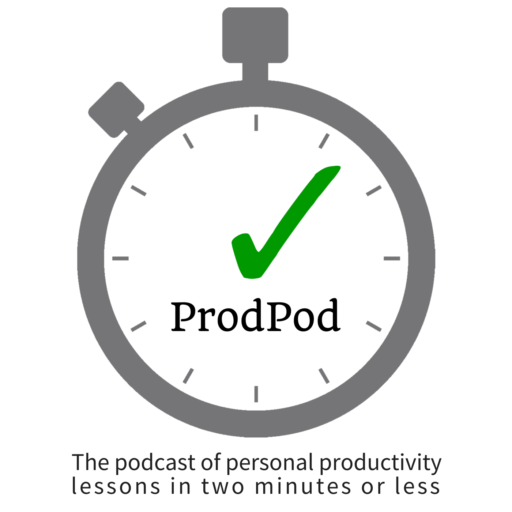There’s a common misconception about procrastination that it only means you’re not doing something you planned to do. Many times we are unaware that procrastination is usually coupled with doing something, if not the thing we planned. This is what I call “procrasti-doing.” And there are some practical measures you can take to procrasti-doing when you want, and when you don’t, so I thought I’d explain them here in this episode.
One of the frequent stories I hear is something like this: “I was supposed to be working on my project, but instead I found myself rearranging the pens and pencils in my drawer.” This is the first classic case of procrasti-doing. One tactic for overcoming this is to think about whether or not your pens and pencils really do need organizing. If that is the case, then perhaps putting that on a project or task list for you to handle later would help you free up the mental bandwidth to get back on task. That goes for any other tasks or projects that might be floating around in your head as you set yourself up to handle any project. This minimizes procrasti-doing and maximizes your brain’s energy to focus.
The other case where procrasti-doing takes hold of us often is when you start doing the tasks in a project out of order or unimportant tasks associated with a project that really won’t move the project toward completion. This might include re-labeling all the project support folders for a major project. Or, one might take to Social Media to engage there about the project instead of actually working on the tasks toward the project’s completion. In this situation, the best approach is two-pronged: first, allow yourself a set amount of time to close out the current activity when you find yourself doing the unproductive procrasti-doing, then re-focus back on starting the next task toward project completion. Remember, it’s about (as Dr. Neil Fiore says in “The Now Habit”) persistent starting.
One final thought I have about procrasti-doing: many times your unconscious mind needs time to problem-solve the project or task you are currently trying to work on. In these cases, it might make perfect, productive sense for you to let your mind wander to other activities while your unconscious does the heavy lifting necessary to help you craft an effective solution. Organizing pens and pencils never sounded so productive.
